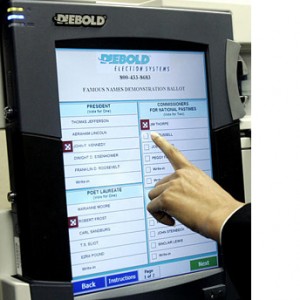By Becci Robbins
SC Alliance for Retired Americans organizer
Some 700 South Carolinians gathered last Saturday in the big hall of the convention center in Columbia to talk about the deficit. No kidding. They could have been grilling or napping or swimming on a lazy summer day, but instead they chose to spend six hours huddled around tables and grappling with this country’s fiscal crisis. The average age in the room was 58.
That sort of civic engagement speaks volumes about our community, and that is very good news.
Unfortunately, the folks who turned out for the Columbia event — and the thousands like them who participated in 60 other cities across the country — may simply be pawns in a larger game staged by powerful forces trying to shape the national discussion on our economic policy.
The much-hyped “town hall” meetings were the product of America Speaks, a group funded by Wall Street fat cat Peter G. Peterson, whose proclaimed mission is to privatize Social Security. It was Peterson who urged President Obama to create the Fiscal Reform Commission — the body that is to receive on June 30 a special report culled from the results of last weekend’s town halls. In December, the Commission will offer its recommendations to Congress, which will then vote — with no debate.
Participants at the America Speaks events were given hand-held devices to record votes on items outlined in our workbooks. We sat at tables made up of 8 to 12 people, and discussed our votes as a group before we cast our individual votes. While we could create our own options if we didn’t feel satisfied by what we had to choose from, these alternative options were not recorded in the electronic tally.
Our table, for instance, unanimously supported the idea of single-payer as the best fix for our health care system, but that was not an option on the table. We objected to a process that did not include the one option we thought most viable and responsible. But our electronic votes did not — and in fact could not — reflect our true wishes.
The discussion became, then, not whether to cut services, benefits and entitlements, but by how much, and to whom. The workbooks offered background information about the deficit and economic projections that were misleading.
Social Security, for instance, does not contribute a penny to the deficit yet was on the chopping block for cuts. Given the false parameters, participants at the America Speaks events voted to raise the retirement age for full benefits to 69, never mind the system is fully funded well beyond 2025.
And while the workbooks at the America Speaks events did say the rising costs of Medicare and Medicaid are fueled by a health care system that is unsustainable and costing twice as much per person than in any other country, reforming health care was not an option.
“We’re playing with a stacked deck,” said SC Alliance for Retired Americans Vice-President Brett Bursey, who attended the event in Columbia. “We’re going to end up with results that are manipulated by those that framed the question.”
He said, “There is no mention of the fact that the war budget is one of the reasons we have this tremendous deficit. There is nothing about the housing bubble causing a $4 trillion hole in the budget that was due to financial mismanagement. So the things that created the situation are not even on the table to be discussed.”
America Speaks challenged participants to find ways to cut the deficit by $1.25 trillion by 2025.
“Single payer and negotiations for prescription drug prices could reduce the budget by $1.25 trillion by 2025,” Bursey said, quoting figures from the Congressional Budget Office that weren’t in the workbook.
According to the Center for Responsible Economic Policy, an infinitesimal tax on all Wall Street transactions could yield $300 billion. America Speaks option was to raise $30 billion with a tax only on standard stock transactions, not the exotic derivatives or default swaps that helped bring on our current economic crisis.
We can only hope that the President’s Fiscal Reform Commission is as thoughtful as Saturday’s participants when they go looking for their $1.25 trillion to plug the hole.
Becci Robbins is the state organizer for the South Carolina Alliance for Retired Americans. For more about the Alliance, call 803-957-8740 or email scalliance@mindspring.com.



